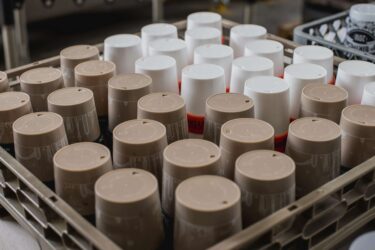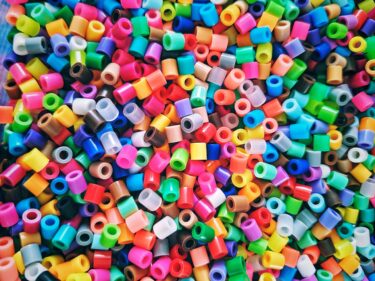
On February 3rd, a train carrying hazardous materials derailed in Eastern Ohio. Several of the train cars were carrying hazardous chemicals, including toxins and carcinogens. Three days later, officials evacuated the immediate area before conducting a controlled release and ignition of the remaining 177,000 pounds of vinyl chloride to avoid an uncontrolled explosion.
What is PVC, and Why Should We Care?
The hazardous chemicals released by the train derailment shed light on the risk of environmental and human health impacts for chemical “building blocks” used to create everyday materials. Vinyl chloride is the “building block”, or monomer, used to make polyvinyl chloride (PVC). PVC is a common plastic used in a variety of applications, including plumbing, wiring, medical tubing, toys, and packaging, due to the high durability and tunable rigid to flexible mechanical properties. In addition to a carcinogenic monomer, PVC is under scrutiny for its plasticizers, end-of-life options, and growing, negative public sentiment.
Plasticizers are used to tune the mechanical properties of PVC from a rigid material for plumbing pipes to flexible for medical tubing. This is achieved through the use of plasticizers, such as phthalates. The most common plasticizer used in PVC is di(2-ethylhexyl)phthalate) or DEHP, which is a suspected carcinogen, reproductive toxin, and known to leach from PVC to potentially expose consumers.
PVC is typically landfilled at end-of-life. The release of hazardous chemicals when incinerated or during certain recycling treatments limits the ability to dispose of PVC in waste-to-energy facilities or chemical recycling. PVC can be mechanically recycled, but at a high cost and with degraded properties that limit cradle-to-cradle reuse.
Organizations, like the Ellen MacArthur Foundation, and businesses, like Apple and Microsoft, have called for PVC to be phased out of packaging and products. Legislation across the globe is looking to limit or ban the use of PVC in different applications. An update to registration, evaluation, authorization, and restriction of chemicals (REACH), as part of the EU Green Deal, aims to limit the use of PVC in products and packaging. A Canadian ban on PVC in single use packaging will take effect in 2023. New Zealand will ban hard to recycle single use plastic, including PVC food trays and containers, by 2025.
What Can Companies Do about PVC?
With growing concern about human health, environmental, and growing negative perceptions, companies can look to replace PVC by replacing with the following alternatives:
- Silicone: higher thermal stability and flexibility than PVC for use in bathroom and kitchen fixtures, toys, and medical applications
- Polyurethane and Thermoplastic Polyurethane: higher impact, abrasion, and tear resistance properties than PVC for use in inflatables and sports equipment
- Metallocene polyolefins: better thermal resistance and similar cost to PVC for use in plumbing pipes and as shrink wrap
- Ethylene vinyl acetate: superior stress cracking, mechanical properties, durability, and UV resistance over PVC for use as flexible tubing or shoe soles.
Companies can also reduce the toxicity of PVC by working with suppliers to source PVC with alternative plasticizers to DEHP, such as di(isonyl)cyclohexane-1,2-dicarboxylate (DINCH), acetyl tributyl citrate (ATBC), and di(2-Ethylhexyl) Terephthalate (DEHT). Companies that use large quantities of PVC without an alternative invest in circular end-of-life options with lower cost and improved recyclate quality.
There is no silver bullet to replace PVC. It is inexpensive and has a wide range of favorable material properties that allow for its use in a variety of applications. Companies should investigate cost, material properties, chemical hazards, and end-of-life impacts when replacing PVC or plasticizers with alternatives to manage tradeoffs to their products.
How We Can Help
Anthesis’ Sustainable Products Team has experience assessing the sustainability of a wide variety of materials, from plastics to biological material. We can help companies assess materials and make recommendations that balance material properties, performance, chemical hazards, product carbon footprint, end-of-life, and additional sustainability impacts. Please contact us today if you have questions regarding PVC or any other material in your product portfolio.
We are the world’s leading purpose driven, digitally enabled, science-based activator. And always welcome inquiries and partnerships to drive positive change together.




